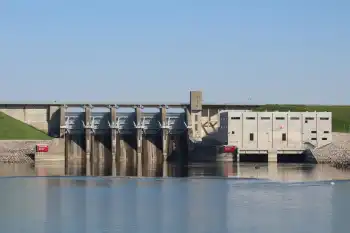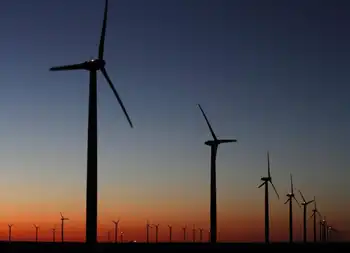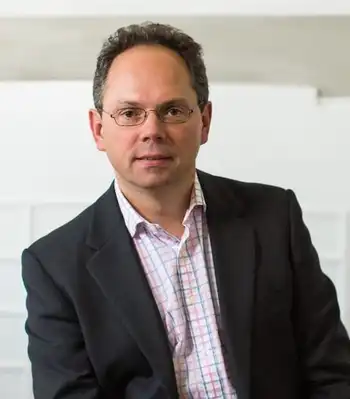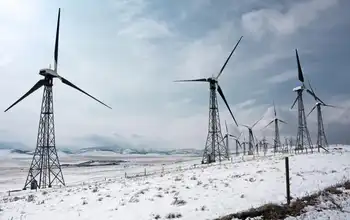San Francisco to vote on clean energy charter
By Environmental News Network
Substation Relay Protection Training
Our customized live online or in‑person group training can be delivered to your staff at your location.

- Live Online
- 12 hours Instructor-led
- Group Training Available
The measure, authored by Supervisors Ross Mirkarimi and Aaron Peskin, requires 51% of the City’s electricity consumption to come from renewable sources by 2017, rising to 75% by 2030, and finally to 100% — "or the greatest amount technologically feasible or practicable" — by 2040.
The Clean Energy Act further mandates an initial feasibility study be done to determine the best way to generate this green, clean, renewable energy to meet those goals.
The study could weaken utility Pacific Gas & ElectricÂ’s hold on the market, and PG&E is already engaged in an active campaign to defeat the measure. As Supervisor Mirkarimi puts it, the feasibility study is important, "Otherwise PG&E has a monopoly until the planet dies".
We donÂ’t usually get much lightning here in San Francisco, but the measure proposed by the Supervisors has shaped up to be a lightning rod, and the source of the lightning sparking it comes from, not surprisingly, Pacific Gas & Electric and, surprising indeed to many (though not all), mayor Gavin Newsom.
Newsom told reporters that "We have other things we should be focusing on" adding that we should "call it what it is. ItÂ’s a power takeover of PG&E."
Really?
Gavin is never slow to remind us of his forward-looking vision for the City (sometimes, for this writer, his self-congratulatory tone goes on ad nauseum); I guess as long as you donÂ’t screw around with PG&EÂ’s monopoly, that is.
Former Newsom campaign manager Eric Jaye, who maintains close ties with the mayor, has been working hard on behalf of PG&E "blanketing the city with lies about the idea of San Francisco kicking the (PG&E) habit", according to former Newsom campaign strategist Bob Brigham.
Speaking at NetRoots Nation earlier this month, Newsom set about launching his campaign for governor, waxing poetic about his green vision for the state and the nation. But when asked why he opposes the Clean Energy Act for San Francisco Newsom could only muster, “Oh, it’s horrible”?, without elaborating further.
Just a couple weeks ago the Mayor was hailing the soon-to-be installed solar panels on City landmark Grace Cathedral as another step toward making "San Francisco the greenest city on Earth", saying that the project "...supports the CityÂ’s goals of increasing the use of clean renewable power".
As long as it doesnÂ’t interfere with business as usual at PG&E.
Newsom added in his remarks at Grace Cathedral, "I commend PG&E for their vision of implementing renewable energy on a true San Francisco landmark".
How about implementing renewable energy in the entire city?
Oops. Apparently thatÂ’s going just a bit too far.
Many supporters say that characterizing this measure as a "public vs. private power" issue is misguided and misleading. Assembly member Mark Leno said that if San Francisco did indeed turn to public power to meet the goals of the measure, it would be as "American as apple pie", noting that 42 million Americans already get their power from public utilities.
Supervisor Gerardo Sandoval further suggested that government is better suited to assume the risks of turning to renewable energy saying that "The private industry is not going to take that risk. ItÂ’s always going to take the cheap way out, which is fossil fuels" (though I would argue that a true and proper accounting of energy from fossil fuels doesnÂ’t really make it that "cheap").
Many think the Renewable Energy Act will help San Francisco be a model for others to follow, as reflected in comments from Supervisor Peskin: "As goes San Francisco, so goes the state of California, and so goes the nation. This is a time when people can change the destiny of the planet".
Granted, there are many parts of the country that may not wish to always follow in the footsteps of San Francisco, but this need not be such an instance.
ItÂ’s just this sort of bold initiative we need from the public sector to help bring to reality a new energy economy. Gavin Newsom and PG&E can come along, or be pushed to the side as cities, states, and nations bring about a new way of doing business.











